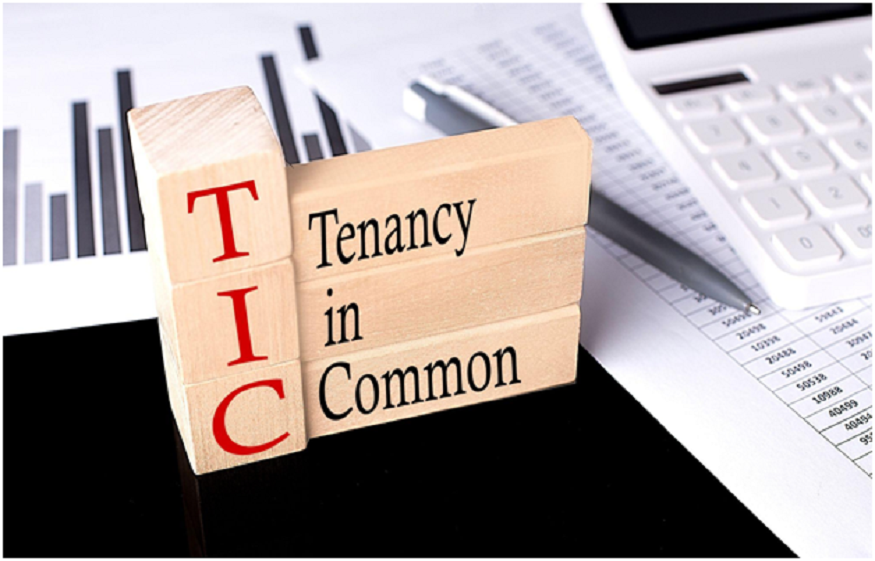With property prices climbing and traditional home ownership becoming less accessible, more Australians are exploring flexible ways to invest in real estate. One increasingly popular model is Tenancy in Common—a legal structure that allows multiple people to share ownership of a property without needing to buy the entire asset themselves.
Whether you’re a first-time investor, part of a group of family or friends pooling resources, or seeking passive income from resort-style assets, Tenancy in Common offers an effective, affordable entry into the property market. It’s also the foundation of what companies like Geonet Properties refer to as fractional real estate investment—a smarter way to grow wealth through property without taking on the full financial burden alone.
What Is Tenancy in Common?
Tenancy in Common (TIC) is a form of property co-ownership where two or more individuals hold an undivided share in the same property. Unlike Joint Tenancy, where owners have equal rights and responsibilities (including the right of survivorship), TIC allows each party to own a different percentage of the property and pass on their share to beneficiaries of their choice.
For example, you and two friends could each own 33.3% of a beach villa, or perhaps you own 50%, and the others 25% each. The flexibility of ownership proportion is one of TIC’s biggest strengths.
How Tenancy in Common Works
Each co-owner in a TIC arrangement:
- Has legal ownership of a specific share of the property
- Can sell, transfer, or will their share independently
- Shares responsibility for ongoing costs like maintenance and insurance
- Has the right to use and enjoy the entire property (unless otherwise agreed)
TIC agreements are particularly common among:
- Friends or family members investing together
- Business partners pooling capital
- Investors buying fractional shares in commercial or hospitality properties
- SMSFs (Self-Managed Super Funds) diversifying portfolios
In Australia, a TIC arrangement must be documented legally, often through a co-ownership agreement that outlines responsibilities, dispute resolution processes, exit strategies, and income distribution.
The Rise of Fractional Real Estate Investment
Fractional ownership—often structured under Tenancy in Common—is now disrupting how Australians access high-value property markets. From hotel suites in Bali to luxury apartments in Sydney, this model is allowing people to invest in prime assets for a fraction of the full cost.
Companies like Geonet Properties specialise in offering fractional ownership opportunities under a compliant TIC structure. Investors can purchase a legal share in a managed resort, enjoy passive income, and even use the property for holidays—all without the hassles of full ownership or property management.
Key Benefits of Tenancy in Common
1. Affordability
You don’t need to buy the entire property to enjoy the benefits of ownership. Investors can get started with a smaller capital outlay and still gain exposure to high-performing assets.
2. Flexible Ownership Shares
TIC allows different ownership percentages. One investor can own 60% while others hold 20% each, making it ideal for people with varied financial capacities.
3. Passive Income
In a professionally managed TIC investment, such as a resort suite or commercial property, owners receive a share of the net rental income in line with their ownership percentage—often without needing to be involved in operations.
4. Estate Planning Flexibility
Unlike Joint Tenancy, TIC allows you to bequeath your share to a chosen heir, which makes it attractive for succession and SMSF strategies.
5. Legal Security
When structured properly, each co-owner’s rights are protected. Clear agreements reduce the risk of disputes and provide a roadmap for exits, refinancing, or resale.
Things to Consider Before Entering a TIC Agreement
While TIC offers many advantages, it’s not without considerations. Here’s what you need to know:
1.Legal Framework
A legally binding co-ownership agreement is crucial. It should define roles, maintenance responsibilities, cost-sharing, usage rights, and what happens if someone wants to sell.
2.Liquidity
Selling your share in a TIC property can take time unless there’s a structured exit strategy or buy-back option in place.
3.Financing Challenges
Obtaining a loan for a TIC share can be complex, especially for residential properties. Many TIC investments—like those offered by Geonet—are cash purchases or made through SMSFs.
4.Dispute Management
Differences in opinions on property use, maintenance, or resale timing can arise. A strong agreement and clear communication are essential.
Tenancy in Common and SMSF Investment
TIC is also well-suited to SMSF property investment. Many Australians are now using their super to buy shares in commercial or hospitality assets that offer strong yields and long-term capital growth.
SMSF trustees must ensure the investment complies with the sole purpose test—it must provide retirement benefits only, not personal use. That said, fractional investments in commercial property, hotels, or business real estate are commonly approved structures when managed properly.
Tenancy in Common in the Hospitality Sector
The hospitality sector is one of the fastest-growing areas for TIC-style investments. Instead of buying residential property, Australians are now:
- Purchasing shares in branded hotel suites
- Earning returns of 10–18% net annually
- Enjoying owner usage benefits in resorts or villas
- Avoiding tenant management and repairs
Geonet Properties leads this trend in Bali and Southeast Asia, offering Tenancy in Common-based investments that include legal compliance, ongoing income distribution, and world-class resort facilities.
Is Tenancy in Common Right for You?
If you’ve been priced out of the traditional property market or want to diversify your portfolio, TIC provides a legitimate, flexible, and secure way to own real estate. With rising demand for fractional investment, particularly in the hospitality and lifestyle sectors, TIC is no longer a niche strategy—it’s a smart, scalable solution for today’s investors.
Whether you’re investing as a group, through your super, or looking for passive income from resorts abroad, Tenancy in Common might be the key to unlocking premium real estate—without premium overheads.
Start Your Fractional Property Journey with Geonet
Geonet Properties offers expertly curated, legally structured Tenancy in Common investments in Bali and beyond. From luxury resort suites to full-service passive income assets, their team helps Australians gain access to high-yield hospitality investments with confidence.
Contact Geonet Property & Finance Group (GPFG) to explore available TIC opportunities and secure your share in a professionally managed resort property today.

